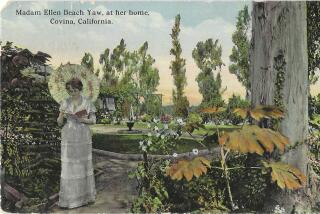‘Great Gospel Women Vol. 2’ Rich in Music’s Tradition : VARIOUS ARTISTS: “The Great Gospel Women Vol. 2” Shanachie ****
Gospel is such a glorious musical tradition that Shanachie could probably put out 50 volumes in this series and still not run out of soul-stirring material. There are 33 tracks here and each is a wonder.
Among the highlights:
* Mahalia Jackson’s “What Could I Do.” Jackson is the most famous gospel singer of all, and her four selections here were taken from the New Orleans native’s sessions at tiny Apollo Records in the late 1940s and early ‘50s. The backing is minimal (just a piano and/or organ), which focuses our attention on the urgency and power of the vocals. The song was written by Thomas A. Dorsey, the great gospel composer with whom she toured in the early ‘40s.
* Sister Rosetta Tharpe’s “That’s All” and “Changes.” The first of these tracks is done in a sassy, early R&B; style, complete with this biting commentary: “When you see people jump from church to church / You know that their confession don’t amount to much.” The second number is another Dorsey tune, accompanied here by country guitarist Grady Martin.
* Marie Knight’s “I’m Gonna Hold On.” Here’s yet another Dorsey composition, and the backing on this 1951 selection is again so close to the R&B; hits of the ‘50s that it’s easy to see why gospel was such a strong component in early rock and soul.
* Clara Ward’s “Blessed Assurance.” There is a stirring, testimonial quality to Ward’s dramatic delivery that makes you understand why Aretha Franklin has cited her as a major influence.
* Mary Johnson Davis’ “Come Ye Disconsolate.” This 1947 selection--reportedly one of only four ever made by the singer--is very scratchy in sound but so rich in emotion that it makes you believe the story in the liner notes about Mahalia Jackson’s being so moved the first time she heard Davis sing that she fainted.
This highly recommended collection was produced by Anthony Heilbut, who declares quite rightly in the liner notes that gospel singers, like blues women, exhibit huge personalities and temperaments that combine a “prima donna’s caprice and a church mother’s authority.”
*
Albums are rated on a scale of one star (poor), two stars (fair), three stars (good) and four stars (excellent).
More to Read
The biggest entertainment stories
Get our big stories about Hollywood, film, television, music, arts, culture and more right in your inbox as soon as they publish.
You may occasionally receive promotional content from the Los Angeles Times.








